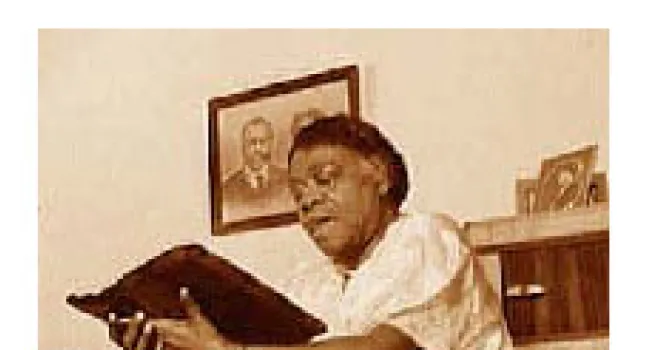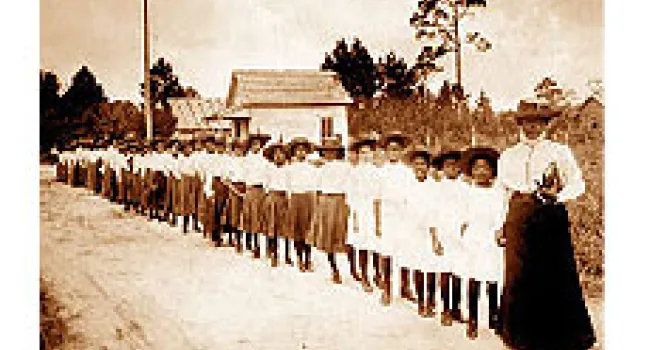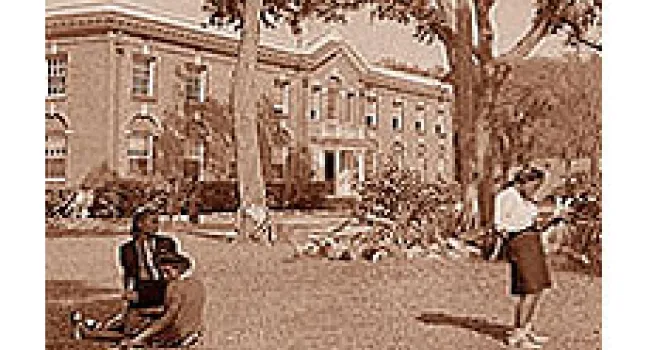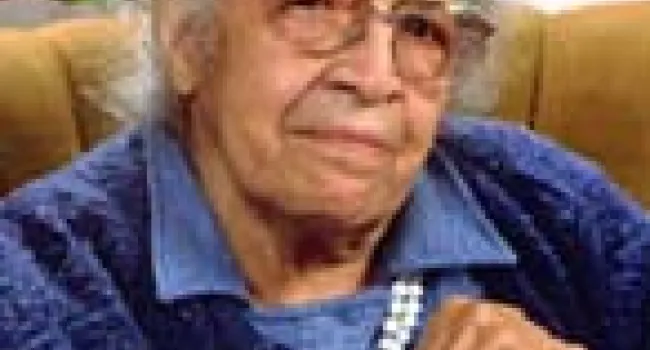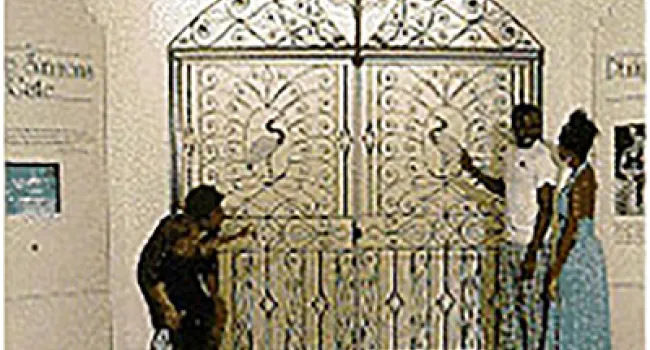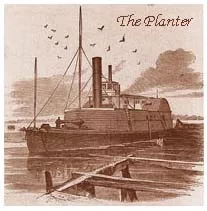
On the evening of May 12, 1862, the captain and officers of the Planter left the ship to spend the night on the shore. Robert and the rest of the slave crew had to stay on board under captain's orders. Later that night, Robert and the remaining crew stole out of Charleston Harbor. On the way out they picked up family members that hid in waiting. One of the biggest problems during the group's escape to freedom was to pass Fort Sumter without causing suspicion. He did this by putting on the captain's uniform and imitating him as they sailed past the guards. Before the escape, Robert had practiced the way the captain walked and appeared on deck. He successfully fooled the guards and the group of slaves steamed north. When they arrived in Union territory they surrendered the ship and gained their freedom.
Over 100,000 freed slaves became soldiers for the Union Army during the Civil War. With his experience sailing the Planter, Robert Smalls was allowed to return to piloting the ship under Union command. Only then could he be recognized officially as the pilot, a title not granted to slaves in the south. Eventually his contribution as a pilot for the Union war effort earned him the rank of Captain. During the 1870s, Robert Smalls served as a US congressman for South Carolina. He was buried in his hometown of Beaufort, S.C.
Standards
- This indicator was developed to encourage inquiry into the continuities and changes experienced by Americans of various genders, positions, races, and social status during the Civil War.
- This indicator was designed to encourage inquiry into the Civil War focusing on the impacts of military strategies and major turning points on South Carolina and the U.S.
En la noche del 12 de mayo de 1862, el capitán y los oficiales del Planter dejaron el buque para pasar la noche en la orilla. Robert y el resto de la tripulación de esclavos tuvieron que permanecer a bordo bajo las órdenes del capitán. Más tarde esa noche, Robert y el equipo restante lo robaron del puerto de Charleston. Al salir recogieron a los miembros de la familia que se escondían esperando. Uno de los mayores problemas del grupo durante la huida a la libertad fue pasar Fort Sumter sin causar sospechas. Lo hizo poniéndose el uniforme del capitán e imitándolo mientras navegaban junto a los guardias. Antes de la fuga, Robert había practicado la forma en que el capitán caminaba y su apariencia en cubierta. Engañó con éxito a los guardias y el grupo de esclavos escaparon al norte. Cuando llegaron al territorio de la Unión, entregaron el barco y obtuvieron su libertad.
Más de 100.000 esclavos liberados se convirtieron en soldados del Ejército de la Unión durante la Guerra Civil. Con su experiencia navegando el Planter, a Robert Smalls le fue permitido volver a pilotar el buque bajo el mando de la Unión. Sólo entonces fue reconocido oficialmente como el piloto, un título no concedido a los esclavos en el Sur. Eventualmente su contribución como piloto de la Unión le valió el rango de capitán. Durante la década de 1870, Robert Smalls sirvió como congresista estadounidense por Carolina del Sur. Fue enterrado en su ciudad natal de Beaufort, S.C.

